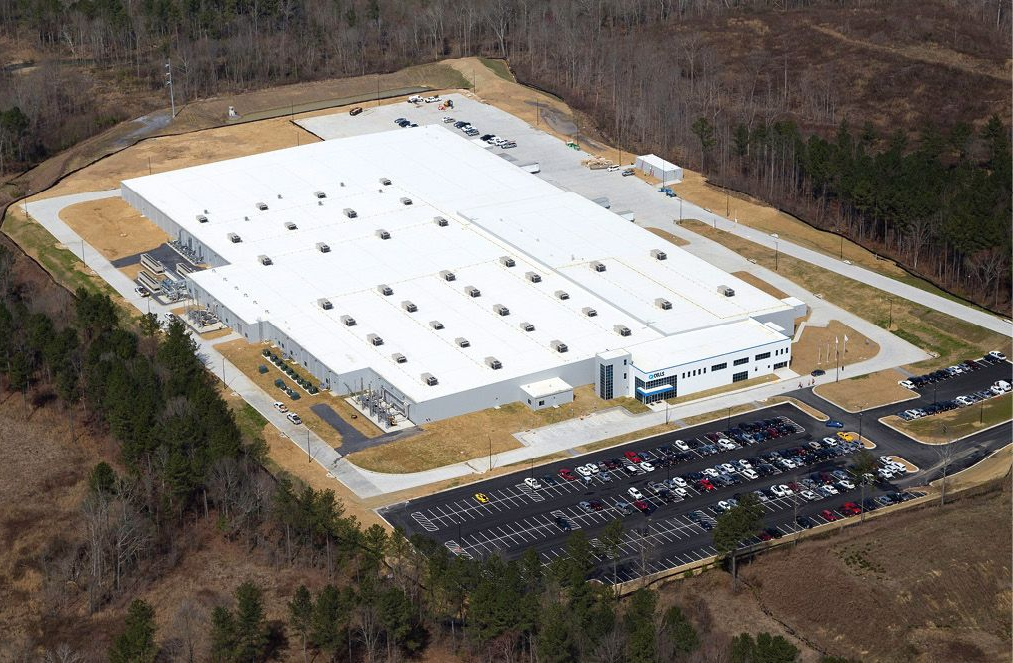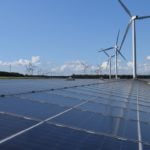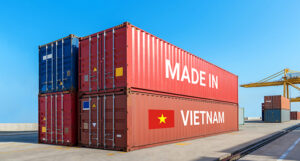Latest
Heliene’s CEO said the deal would help their customers meet the IRA domestic content tax threshold. Image: Solarcycle
Canadian solar cell and module manufacturer Heliene will buy recycled glass from US PV recycling firm Solarcycle for use in the production of new modules.
Solarcycle will supply Heliene with 4GW of glass over the next five years. The company announced plans for a solar glass production facility in Georgia, US, earlier this year.
This article requires Premium Subscription Basic (FREE) Subscription
Unlock unlimited access for 12 whole months of distinctive global analysis
Photovoltaics International is now included.
Regular insight and analysis of the industry’s biggest developments
In-depth interviews with the industry’s leading figures
Unlimited digital access to the PV Tech Power journal catalogue
Unlimited digital access to the Photovoltaics International journal catalogue
Access to more than 1,000 technical papers
Discounts on Solar Media’s portfolio of events, in-person and virtual
Or continue reading this article for free
In addition to its headquarters in Canada, Heliene operates a solar module manufacturing facility in Mountain Iron, Minnesota, and has announced plans to expand US production capacity in a joint venture (JV) with Indian cell manufacturer Premier Energies. The company currently produces tunnel oxide passivated contact (TOPCon) products in the US.
Solarcycle has signed a raft of deals with US solar manufacturers since its foundation in 2022. Most of these have been recycling deals, where the company will receive delivery of decommissioned or broken modules from a manufacturer’s operations. Most recently, it inked one with multi-national solar manufacturer Canadian Solar for modules produced at its US facility.
In March, it signed the first recycled glass deal with California-based manufacturer Silfab.
Domestic content adder
Martin Pochtaruk, CEO of Heliene said: “Partnering with Solarcycle enables us to improve our supply of domestic components, to help our clients qualify for the domestic content adder while materially reducing our carbon footprint.”
Heliene has previously inked a solar cell supply deal with US producer Suniva and, according to comments heard by PV Tech in the past, has also secured domestic module frame supply deals.
The domestic content tax adder gives project owners a 10% bonus credit on top of the Inflation Reduction Act’s (IRA) 30% Production Tax Credit (PTC). To qualify, a minimum of 40% of the components in a solar array must be US-made, rising to 55% from next year. The threshold is calculated based on the cost of components.
Most US-produced silicon solar modules will currently be unable to meet the requirements, as US domestic cell supply (which forms the majority of a module’s cost) is growing significantly slower than domestic module assembly capacity.
Solarcycle’s solar glass joins a number of other non-silicon solar products which have been announced in the US to address the IRA demands for domestic content. Solar tracker products have been announced by major US producers and a number of companies have signed inverter supply deals for US products.
In July, PV Tech published a blog examining the glass, backsheet and frame manufacturers which are supporting the domestic solar capacity boom in the US.
Last week, at the RE+ trade conference in Anaheim, California, PV Tech Premium heard a lot of discussion about the domestic content bonus from both developers and manufacturers. Arevon, a major US solar and energy storage developer, said domestic supply offers price security for developers looking to finance projects. Justin Johnson, Arevon COO, said that the policy was “awesome” for the industry and that developers could access the bonus through mixing their suppliers between US and imported products.
In contrast, we heard from upstream players saying that the domestic content adder was not significant enough to encourage developers to buy US products. Earlier this year, the Solar Energy Manufacturers for America (SEMA) coalition called on the US government to expand the scope of the domestic content adder to include solar wafers in its calculation.
FREE WEBINAR – Join two of the leading experts in the PV industry today, Finlay Colville of PV Tech and Philip Shen of ROTH, as they address some of the most pressing issues impacting on the PV industry globally today; kicking off with what is happening now with regards U.S. module supply and efforts to get a domestic U.S. silicon-based manufacturing sector off the ground.
But don’t just let Finlay and Phil choose their list of topics – have your say. What questions do you want to hear their thoughts on? Once you register you will be sent a link to a survey where you can vote for the topics you would like to hear discussed and add your own suggestions. We will add the most common themes and get Finlay and Phil to address them live on the webinar. Technology, policy, profitability, pricing? China, Europe, India or the U.S.? What is your biggest unknown for the sector from 2025 onwards?
San Francisco Bay Area, USA
PV Tech has been running an annual PV CellTech Conference since 2016. PV CellTech USA, on 8-9 October 2024 is our second PV CellTech conference dedicated to the U.S. manufacturing sector. The event in 2023 was a sell out success and 2024 will once again gather the key stakeholders from PV manufacturing, equipment/materials, policy-making and strategy, capital equipment investment and all interested downstream channels and third-party entities. The goal is simple: to map out PV manufacturing in the U.S. out to 2030 and beyond.
FREE WEBINAR – Recent changes in legislation around the world have spurred a new wave of factory building globally with new factories in the U.S., Europe and Southeast Asia. Increased ESG requirements in Europe mean that module buyers are applying new criteria to their module selection process and will be considering PV modules from new suppliers and manufacturers located outside of China. This creates new challenges for testing and inspection of PV Modules as they consider new module suppliers and update their due diligence processes.
PV Tech has been running PV ModuleTech Conferences since 2017. PV ModuleTech USA, on 17-18 June 2025, will be our fourth PV ModulelTech conference dedicated to the U.S. utility scale solar sector. The event will gather the key stakeholders from solar developers, solar asset owners and investors, PV manufacturing, policy-making and and all interested downstream channels and third-party entities. The goal is simple: to map out the PV module supply channels to the U.S. out to 2026 and beyond.
Read Next
The winning bid from SunPower assets are the Blue Raven Solar business, New Homes business and non-installing Dealer network.
Section 301 tariffs to be implemented in 2024 will take effect on 27 September, such is the case for solar cells.
The US Department of Energy (DOE) has closed loan financing for a 15MW solar-plus-storage project to be built on Tribal land in California.
PV Tech Premium spoke with Arevon about IRA transferability, domestic content, being an IPP and why they’re building in Indiana.
Aggreko Energy Transition Solutions has closed US$66 million in loan financing to develop 88.5MW of distributed solar capacity in the US.
The New South Wales Independent Planning Commission in Australia has approved plans for the 100MW solar-plus-storage Wallaroo Solar Farm, subject to conditions.
Subscribe to Newsletter
Most Read
Features , Editors’ Blog , Long Reads
Upcoming Events
Huntington Place Detroit, MI
https://www.pv-tech.org/heliene-solarcycle-ink-us-recycled-solar-glass-supply-deal/





